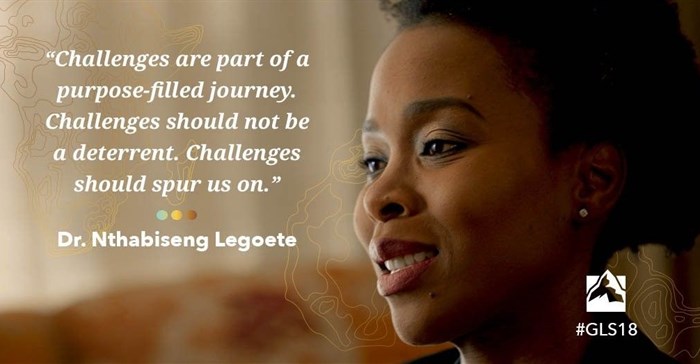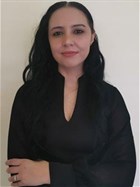The Summit is hosted in various locations across the globe and viewed by more than 445 000 leaders via video conferencing.
Vision, trust, values, mistakes and courage were the five dominating themes at the conference. The leaders provided unique perspectives on how these themes can help develop the kind of leaders the world desperately needs.
The thirteen internationally acclaimed speakers included business owners, CEOs and leaders namely; Danny Meyer, John C. Maxwell, Carla Harris, Simon Sinek, David Livermore, Zimbabwean businessman Strive Masiyiwa, Craig Groeschel, Danielle Strickland, Erwin McManus, South African business woman Dr Nthabiseng Legoete, Rasmus Ankersen, Juliet Funt and T.D Jakes.
In this article, I provide a summary of their views on these themes and how it impacts leaders in various roles including leaders of companies, of families, in churches, in communities and schools. In some way, every individual is a leader, even if they are just leading themselves. Below I explain how these themes can be used to make everyone a better leader.
1. Vision
The vision for most companies is to become the biggest or greatest in their industry. According to Sinek, this is the problem with most organisations - they lead a finite game, not an infinite one. In the finite game, the leader is always competing against someone or something, but in the infinite game, “there is no such thing as winning and losing, only being more ahead or more behind.” Maxwell corroborated this stating that “leaders see more than others see and see before others see.”
In an infinite game, the leader has the courage to believe in something bigger than themselves, bigger than their organisation; they want to change the world, not just their world.
“The primary benefit of leadership should be to benefit someone other than the leader,” says Sinek.
Similarly, Strickland said that “great leaders use their power to empower people, they imagine a better world, and they understand oppression.” A great leader’s vision is greater than they are, they use their influence to empower people, to bring about change and to fight oppression - this should be the vision. An infinite leader has an infinite vision.
Leadership is about more than just the organisation.
2. Trust
There is a lack of trust in organisations. Employers don’t trust employees and employees don’t trust employers. This has resulted in fear-based organisations where employers lead with compulsive control that leads to exploitation and employees just cease to innovate, because as Harris states, they don’t receive due credit when they succeed, or they fear retribution if they fail.
Leaders are responsible for building and nurturing the trust relationships in organisations. The mistake many leaders make is adopting leadership personas that are not compatible with their unique identity. According to Harris, authenticity is at the heart of authentic leadership.
“When you bring your authentic self to the table people will trust you. Your authenticity is your distinct competitive advantage.” Harris advises that leaders can only be authentic when they know themselves, and when they are authentic their team trusts them, and the leader unconsciously gives the team permission to bring their authentic selves to work.
3. Values
Values are key to collaboration, diversity and innovation and people bring values to life.
Masiyiwa says that leaders must respect the people who work for them because employees help leaders achieve what they need.
According to Meyer, you also need to make sure you choose the right people. He says that to thrive in the hospitality industry, you need 49% technical proficiency and 51% hospitality. One of the mistakes he made was holding onto people who are technically excellent, but poor at hospitality. This is how he lost the good employees who were both technically proficient and good at hospitality. He says that hospitality is how you make people feel when delivering the service, “people can copy innovation, but they cannot copy how you uniquely make someone feel.”
Values also impact diversity. Masiyiwa says that “to become a global company, you must understand that values are universal, and can cross all faiths.” Values connect people regardless of the language they speak, their religion, their country of origin, their gender or their age. With shared values, people can overcome the seeming challenge of difference presented by diversity.
Harris advises that organisations need diversity to excel and innovate because innovation is the dominant competitive advantage across all markets. “Ideas are born from perspectives, perspectives are born from experiences and experiences are born from people,” says Harris. Therefore, to multiply your innovation, you need to multiply your perspectives with diverse people.
4. Mistakes
Mistakes became a powerful theme at the conference because several speakers were bold enough to admit their own mistakes.
A bold move by Livermore was when he shared snippets from his university diary that displayed a grave lack of understanding of diversity and connecting with other cultures. This was especially courageous considering that he is now a social scientist, specialising in topics of cultural intelligence (CQ).
Meyer explained how he used mistakes to his advantage. Whether it be messing up orders or spilling drinks over their customers, they would follow a process in rectifying that mistake that includes; being aware that they made a mistake, acknowledging it, apologising, acting on it and fixing it, and finally applying additional generosity. “This is how you write a great next chapter because when the customer talks about the mistake, they will talk about how well it was handled,” says Meyer.
Similarly, Craig Groeschel opened the Summit by speaking openly about the sexual harassment allegations made against Willow Creek’s founder, Bill Hybels. The senior pastor at the Harvest Christian Church and host of the Summit in Port Elizabeth said that they continued hosting the Summit, because regardless of the outcome of the allegations, “The Summit is not about Bill Hybels, the Summit is bigger than Bill Hybels. The Summit is needed to develop the kind of leaders that will change the world.”
Subsequently, a lot of time was dedicated to educating delegates about the abuse and oppression that women face globally.
5. Courage
Leaders are courageous, and when leaders are courageous, they are willing to make changes and take risks even when they could be wrong.
Legoete says, “challenges are part of a purposeful journey. When you make changes, you have critics and people won’t like you. You have to know that your purpose is not for people to like you.” Similarly, Sinek says, “it takes remarkable courage to believe in something bigger than yourself.”
It takes courage to be misunderstood, doubted and continue moving forward despite all these challenges.
Cancer survivor, McManus said, “Most of us only have the structure to lead when life is at peace…Learn to walk through the pain.”
Conclusion
In summary, the Summit demonstrated that leadership is about being faithful in your vision. Leaders see what is at the top of the staircase when others only see the first step.
Leaders know who they are, they know the powerful role they play and understand the massive responsibility that comes with that kind of power, the responsibility to be a good leader.
Leaders understand that who someone is, their values, is often more important than what they can do. They understand that mistakes will be part of their journey, but what differentiates them is how they respond to those mistakes, how they write that ‘great next chapter’.
And most importantly, leaders have the courage to use their power as a tool to empower the world, to change the world – and this is the kind of leaders we need.







































